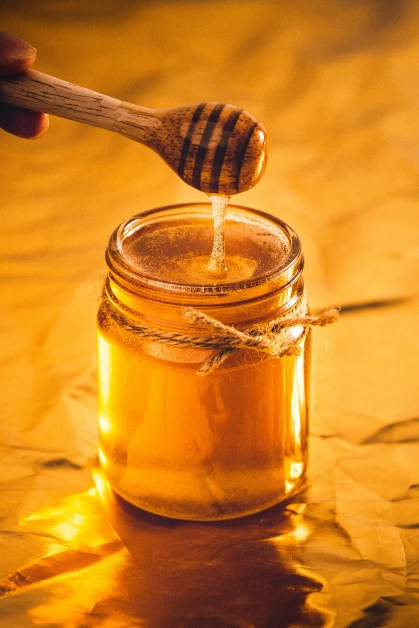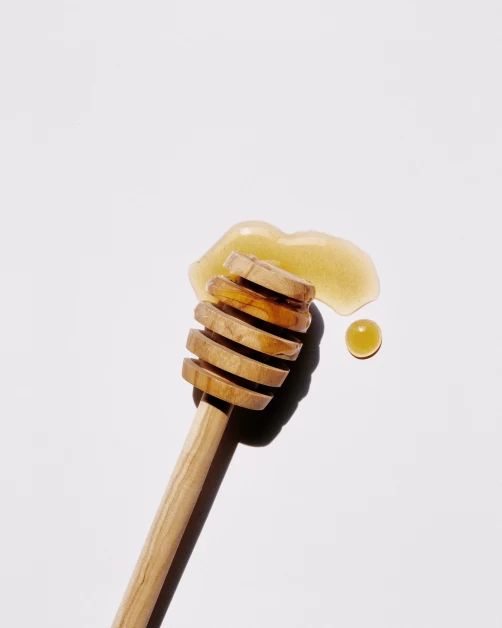Table of Contents
Manuka honey, especially when raw, has been proven to have unique qualities that make it an effective medicament for oral health and overall well-being. Recent peer-reviewed articles have shed light on the newest research, all coming to the same conclusion: manuka honey is a valuable adjunctive medicine for the mouth. With its multifaceted benefits, manuka honey can serve as a toothpaste, antibiotic, antiviral, antifungal, regenerative agent, anti-cancer substance, antioxidant, prebiotic, and anti-inflammatory. In this article, we will delve into what manuka honey is, how it works in the mouth, how to use it, and recommend brands to purchase, including the one personally used by the author.
What is Manuka Honey?
Manuka honey is a type of honey derived from the nectar of the manuka tree, which is native to New Zealand and southeastern Australia. To produce manuka honey, beekeepers introduce European honeybees to areas with a high concentration of wild manuka trees during their 6-week blooming period. These trees grow in a pollution-free environment, free from industrial chemicals and pesticides.
Manuka honey differs in appearance and taste from other honeys. It has a thicker consistency due to its high levels of specific proteins. Typically, it has a dark cream or dark brown color and a flavor described as “earthy” compared to other raw honeys.
Like most honeys, manuka honey is composed of approximately 80% sugars, 17% water, and the remaining percentage consisting of minerals, organic acids, enzymes, and other components. Its sugar content includes about 31% glucose, 38% fructose, and a mixture of more complex sugars that are more difficult for the body to break down. Honey also contains fructo-oligosaccharides, a type of prebiotic that feeds beneficial bacteria in the gut.
While all honeys contain around 200 biologically active chemicals, manuka honey stands out due to its unique compound called methylglyoxal (MGO). This non-peroxide compound provides manuka honey with bacteriostatic properties that enhance wound healing and tissue regeneration through its immunomodulatory effects. Manuka honey has concentrations of MGO that are not present to the same extent in other honeys, making it even more beneficial.
A review published in 2017 by Niaz et al explored the tissue regenerating effects of manuka honey. The authors found that manuka honey has the potential to inhibit the process of carcinogenesis by controlling different molecular processes and the progression of cancer cells.
Oral Benefits of Manuka Honey
Over 100 systemic diseases and 500 medications have oral manifestations, with 145 commonly prescribed drugs causing dry mouth. Manuka honey, especially, can have positive effects on these oral manifestations. Numerous peer-reviewed papers support the medical applications of honey when used in the mouth:
- Honey exhibits antibacterial effects on nearly 60 species and prevents the development of resistant strains of bacteria.
- Manuka honey is effective in preventing the growth of biofilm organisms, reducing acid production, and decreasing gingivitis.
- Randomized controlled trials indicate that honey helps prevent dental caries and gingivitis following orthodontic treatment.
- A double-blind, randomized controlled trial demonstrates that manuka honey and raw honey are as effective as chlorhexidine mouthwash.
- Manuka honey controls odor and inflammation in wounds secondary to squamous cell carcinoma of the oral cavity.
- Tualang honey has cytotoxic effects on cultured oral squamous cell carcinomas.
- Multiple reports indicate that honey is beneficial in the treatment of radiation-induced mucositis and xerostomia in people undergoing curative radiotherapy for head and neck cancer.
- Honey enhances wound healing in non-healing or recurrent wounds in the head and neck area after radiotherapy.
Practical Applications of Manuka Honey
Manuka honey’s thicker consistency compared to regular honeys means that smaller amounts are typically used for various applications. Here are some practical ways to incorporate manuka honey for dental health:
-
Toothpaste: Place approximately 1/2 teaspoon of manuka honey in your mouth and spread it around all your teeth using your tongue. Then, use an electric toothbrush as you normally would.
-
Healing oral soft tissue lesions: Swish 1/4 to 1/2 teaspoon of honey around your mouth for about a minute, then swallow. Repeat as necessary.
-
Lips and corner of mouth: Apply manuka honey to dry lips and sore corners of the mouth as needed.
-
Systemic benefits: Consume about 1/2 teaspoon of honey 2-3 times a day to experience systemic benefits such as improved cough and cold symptoms from upper respiratory infections, prevention of gastric ulcers, and alleviation of digestive symptoms.
-
Mouthwash: If you feel the need to freshen your mouth, swish with 1/4 to 1/2 teaspoon of honey and then swallow.
-
Dry mouth: For individuals with dry mouth or xerostomia, swish with 1/4 to 1/2 teaspoon of honey as needed, then swallow.
Purchasing Options for Manuka Honey
The New Zealand government’s Ministry for Primary Industries (MPI) established the first global standard and scientific definition for manuka honey in early 2018. This government-regulated and approved standard is the only one of its kind in the world. As of February 5, 2018, all honey labeled as manuka honey and exported from New Zealand must undergo testing to meet the MPI standard before lawful exportation. Test results from the certifying lab must accompany the export documents to ensure the authenticity of manuka honey packed in New Zealand.
Here are some highly-rated brands of manuka honey to consider:
- Manuka Honey KFactor16 from Wedderspoon (recommended by the author)
- Kiva Raw
- Manuka Doctor Bio Active
- Comvita Premium
- Happy Valley Honey
- Manuka Health 100% Pure
- Pacific Resources Fancy Grade
Conclusion
Raw honey, particularly manuka honey, has been scientifically proven to be an effective adjunctive medicament for oral health. Its diverse range of benefits makes it a versatile option for maintaining and improving dental health. Manuka honey’s unique compound, MGO, sets it apart and enhances its wound healing and tissue regeneration properties. By incorporating manuka honey into your oral care routine, you can experience the numerous benefits it offers. Give it a try and witness the positive impact it can have on your dental health and overall well-being.
Sources:
– [1] https://www.ncbi.nlm.nih.gov/pmc/articles/PMC4837971/
– [2] https://www.sciencedirect.com/science/article/pii/S1349007918300975?via%3Dihub
– [3] https://www.ncbi.nlm.nih.gov/pubmed/28901255
– [4] https://www.ncbi.nlm.nih.gov/pubmed/18210383
– [5] https://www.ncbi.nlm.nih.gov/pubmed/28901255
– [6] https://www.ncbi.nlm.nih.gov/pubmed/?term=Honey%E2%80%93a+remedy+rediscovered+and+its+therapeutic+utility
– [7] https://www.ncbi.nlm.nih.gov/pubmed/?term=The+antimycobacterial+effect+of+honey%3A+an+in+vitro+study
– [8] https://www.ncbi.nlm.nih.gov/pmc/articles/PMC6034044/
– [9] https://www.ncbi.nlm.nih.gov/pmc/articles/PMC3220139/
– [10] https://www.sciencedirect.com/science/article/pii/S1013905214000327
– [11] https://www.ncbi.nlm.nih.gov/pmc/articles/PMC5855267/
– [12] https://www.ncbi.nlm.nih.gov/pubmed/25734464
– [13] https://www.ncbi.nlm.nih.gov/pmc/articles/PMC2949736/
– [14] https://www.ncbi.nlm.nih.gov/pubmed/?term=Topical+application+of+honey+in+the+management+of+chemo%2Fradiotherapy-induced+oral+mucositis%3A+A+systematic+review+and+network+meta-analysis
– [15] https://www.ncbi.nlm.nih.gov/pubmed/?term=The+effectiveness+of+thyme+honey+for+the+management+of+treatment-induced+xerostomia+in+head+and+neck+cancer+patients%3A+a+feasibility+randomized+control+trial
– [16] https://www.ncbi.nlm.nih.gov/pubmed/?term=The+treatment+of+chronic+wounds+in+the+head+and+neck+area+after+radiotherapy+with+medical+honey
– [17] https://www.mpi.govt.nz/dmsdocument/17374-manuka-honey-science-definition-infographic
– [18] https://wedderspoon.com/pages/frequently-asked-questions

